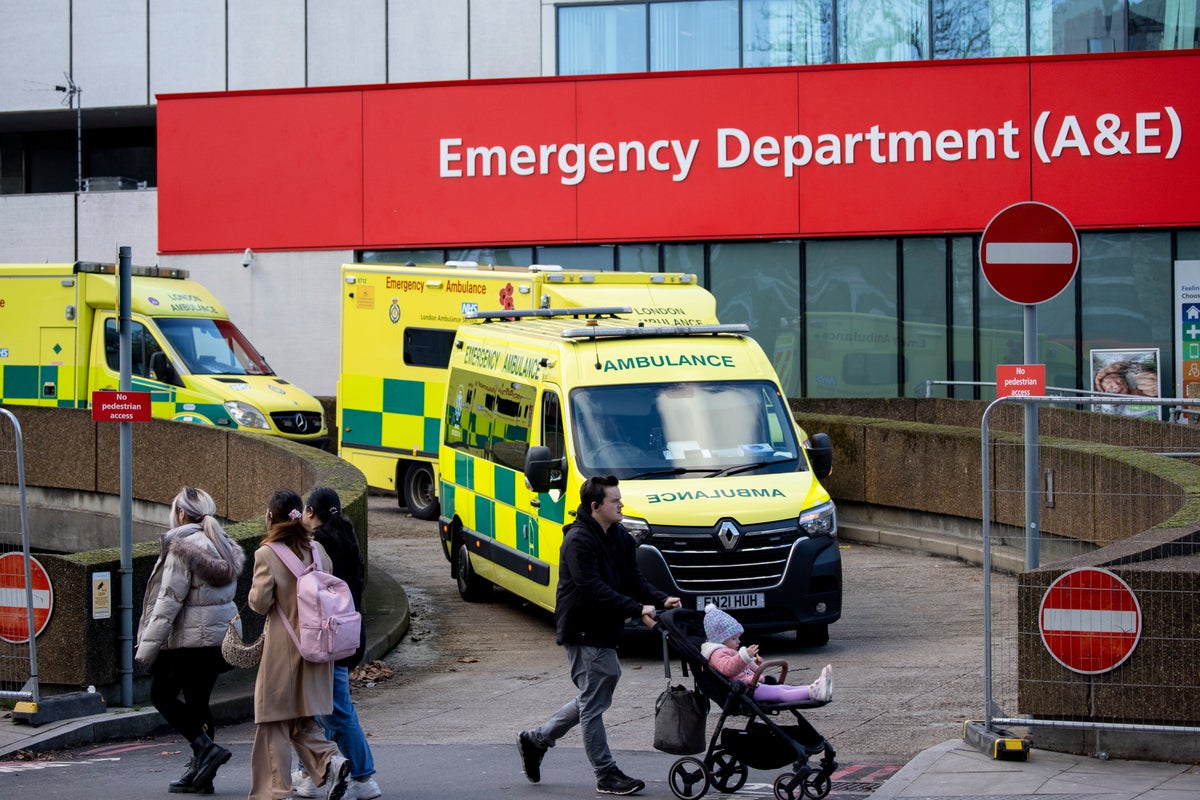
A&E departments are “haemorrhaging” nurses with staff resigning every day, a top doctor has warned, as the head of the NHS admitted upcoming strikes would be “difficult” for services.
Dr Adrian Boyle, president of the Royal College of Emergency Medicine, said that December had been the worst winter the NHS had seen and the situation would not be helped by nurses “leaving in droves”.
Chris Hopson, chief strategy officer for NHS England, told the committee that combined strike action between nurses and ambulance workers on February 6 – the biggest walkout in NHS history – constituted a “new and more difficult phase in the dispute”.
Speaking to a Commons Health Committee on Tuesday Dr Boyle said he was worried staff “burnout will lead to burn away”.
“I’m also worried a lot of nurses, particularly the experienced nurses, they’re almost like the NCOs [non-commissioned officers] of the health service they know how to get things done, are leaving in droves. Every time I go into work I’m seeing nurses [say] can you sign this leaving card?
“We are haemorrhaging experienced nurses because they’re finding it very frustrating, not because there is too much work but because they’re unable to do the work they were trained to do.”
His warning comes after the NHS recorded its worst-ever A&E and ambulance delays in December. The Independent revealed hidden NHS data which showed a record 50,000 people a week were waiting more than 12 hours to be seen in emergency departments last month.
The NHS is set to publish a major plan on tackling A&E pressures within the next two weeks, Mr Hopson said.
The two health bosses, along with NHS England directors, were brought to the Health and Social Care Committee to be questioned over reports that A&E delays were leading to 300-500 deaths a week.
Mr Hopson previously said he “did not recognise the figures” when questioned about the claims during an interview.
Asked to explain his statement by the committee chair, Steve Brine, Mr Hopson acknowledged the “unprecedented” and “extreme pressures” on emergency care but said, “context around excess deaths makes it difficult to analyse the exact cause of those excess deaths”.
He added that the academic paper on which the 500-a-week estimate is based “suggests a link to” delays in admitting patients from emergency departments and mortality and so he said that the figure could not be “definitive”.
Regarding winter planning, Mr Hopson told the committee that the NHS had a number of preparation measures in place to tackle increased demand, including opening 7,000 additional beds or virtual wards, and 1,000 extra 111 and 999 call handlers.
He said Covid and flu levels peaked on 29 December and with 12,000 people delayed in hospital beds this had led to 28,000 beds being occupied.
Dr Boyle said that had preparation plans worked, the NHS would not have seen the outcomes that occurred during winter.







